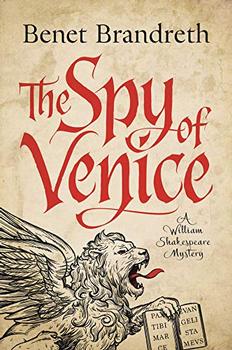Summary | Excerpt | Reviews | Beyond the book | Read-Alikes | Genres & Themes | Author Bio

Against a teeming canvas of Borgia politics, Niccolò Machiavelli and Leonardo da Vinci come together to unmask an enigmatic serial killer, as we learn the secret history behind one of the most controversial works in the western canon, The Prince.
When Pope Alexander dispatches a Vatican courtesan, Damiata, to the remote fortress city of Imola to learn the truth behind the murder of Juan, his most beloved illegitimate son, she cannot fail, for the scheming Borgia pope holds her own young son hostage. Once there, Damiata becomes a pawn in the political intrigues of the pope’s surviving son, the charismatic Duke Valentino, whose own life is threatened by the condottieri, a powerful cabal of mercenary warlords. Damiata suspects that the killer she seeks is one of the brutal condottierri, and as the murders multiply, her quest grows more urgent. She enlists the help of an obscure Florentine diplomat, Niccolò Machiavelli, and Valentino’s eccentric military engineer, Leonardo da Vinci, who together must struggle to decipher the killer’s taunting riddles:
Leonardo with his groundbreaking "science of observation" and Machiavelli with his new "science of men." Traveling across an Italy torn apart by war, they will enter a labyrinth of ancient superstition and erotic obsession to discover at its center a new face of evil - and a truth that will shake the foundations of western civilization.
Michael Ennis, an art historian, takes great pains with the historical and cultural authenticity of the story. If read for its historical content and characters, The Malice of Fortune is richly satisfying despite its somewhat convoluted plot...continued
Full Review
(609 words)
This review is available to non-members for a limited time. For full access,
become a member today.
(Reviewed by Elizabeth Whitmore Funk).
The Borgia name is synonymous with corruption, crime, and scandal. In Malice of Fortune, several Borgia family members play both prominent and subtle roles against the backdrop of the Renaissance papacy.
Pope Alexander VI
 Born in Spain as Roderic Llançol i de Borja (Rodrigo Borgia), he studied law in Bologne before being appointed cardinal by his uncle, Pope Callixtus III. During his reign, Alexander VI became known for his illicit relationships, political corruption, and nepotism. In The Prince, Machiavelli writes that "Alexander VI did nothing but deceive men" (chapter XVIII).
Born in Spain as Roderic Llançol i de Borja (Rodrigo Borgia), he studied law in Bologne before being appointed cardinal by his uncle, Pope Callixtus III. During his reign, Alexander VI became known for his illicit relationships, political corruption, and nepotism. In The Prince, Machiavelli writes that "Alexander VI did nothing but deceive men" (chapter XVIII).
Cesare, the Duke of Valentino
 Cesare is believed to be Rodrigo Borgia's oldest son and his ruthless political manner is often cited as Machiavelli'...
Cesare is believed to be Rodrigo Borgia's oldest son and his ruthless political manner is often cited as Machiavelli'...
This "beyond the book" feature is available to non-members for a limited time. Join today for full access.

If you liked The Malice of Fortune, try these:

by Benet Brandreth
Published 2019
Shakespeare in Love meets C. J. Sansom in a historical thriller with a swashbuckling twist - and a hero as you've never seen him before.

by Robert Harris
Published 2017
The best-selling author of Enigma and Fatherland turns to today's Vatican in a ripped-from-the-headlines novel, and gives us his most ambitious, page-turning thriller yet - where the power of God is nearly equaled by the ambition of men.
Finishing second in the Olympics gets you silver. Finishing second in politics gets you oblivion.
Click Here to find out who said this, as well as discovering other famous literary quotes!